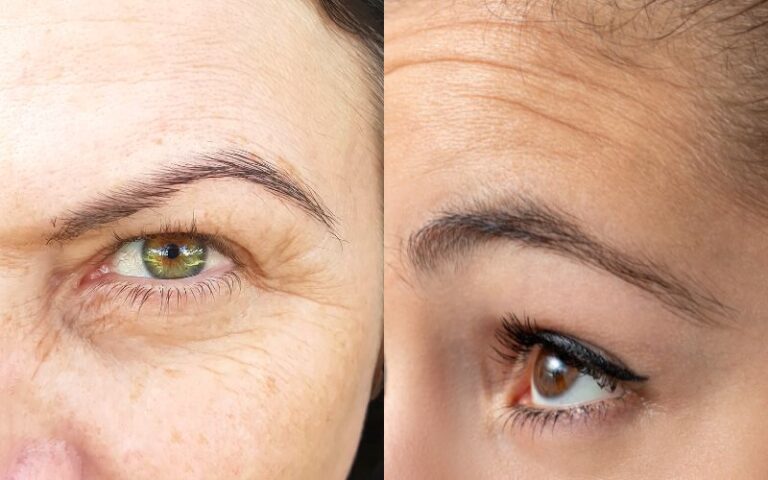Sleeping Longer Than 6.5 Hours A Night Could Lead To Cognitive Decline, New Study Reports

We’ve all heard that it’s recommended to get 7-8 hours of sleep per night, but is it necessarily true?
It’s been proven that a lack of sleep can lead to cognitive decline over time, however, recent studies now suggest that you can also get too much sleep.
This begs the question, how much sleep do you consistently need for proper cognitive function over time, and how much sleep is too much?
The Amount of Sleep Needed for Optimal Cognitive Function
Most everyone will have a different sleep cycle due to their daily responsibilities, however, the amount of sleep needed, including deep sleep, was recently discovered by researchers at Washington University School of Medicine to only be 4.5 – 6.5 hours per night.
Along with publishing the number of hours needed consistently, the study also revealed how too much sleep is also associated with cognitive decline over time.
How the Study Worked?
With an average age of 70 years old, 100 participants were tracked for an average of 4.5 years to find their Preclinical Alzheimer Cognitive Composite (PACC) score.
To find their PACC score, participants were instructed to complete both neuropsychological and cognitive tests to seek out signs of dementia or cognitive decline.
As the scores were rated, those with a higher score had better signs of cognitive function and less decline, and rather those with a lower score were proven to show signs of dementia and cognitive decline over time.
Why Sleep Quality Matters
Along with the duration of sleep being tested through the study, it was also found that the quality of sleep plays an important factor in cognitive function as well.
The participants were able to accurately have their brain activity measured through a single-electrode encephalography (EEG) device, to allow the researchers to know both the duration of sleep the participant was receiving and how restful their night’s sleep was.
Those who experienced sleep disturbances or lower quality of sleep were shown to have an increased likelihood of showing signs of dementia and cognitive decline.
How to Improve Your Quality of Sleep
We may not always be able to control the amount of sleep we get on any given night but we are able to better our routine and environmental conditions in which we sleep to get better quality sleep.
In order to improve your sleep quality to consistently get a rejuvenating nights rest try:
- Listening to your body. Often we give ourselves rigid bedtimes forcing ourselves to either stay up later or go to bed before we are ready. By being flexible and listening to your body when it’s ready to sleep, you’re more likely to get a quality night’s rest where you wake up ready to take on the day.
- Winding down before bed. By creating a nightly routine to wind down before you go to bed, without your phone, and possibly with a skincare regime and some herbal tea, you’re able to naturally allow your body to find a state of rest and relaxation before you even close your eyes.
- Reading as you doze off. Reading a good book for 15 minutes per day has been shown to boost brain function and when added to your nightly routine before bed you’re able to separate yourself from your daily stresses and drift off peacefully.
- Leave a notepad on your nightstand. Our quality of sleep is often impacted by anxiety or important thoughts that come to us as we wind down or even as we sleep. By keeping a notepad on your nightstand you’re able to write down your worries or thoughts and get to them in the morning after you’re rested.
- Creating a relaxing bedroom. Now more than ever more people are working from home or taking their work home with them. By ensuring that you don’t work in your bed you’re also conditioning your brain to promote relaxation while you’re trying to rest and fall asleep. Make your bedroom your oasis and your sleep quality is bound to improve!
In Conclusion
Although we have been conditioned to think that we need around 8 hours of sleep, it has now been proven that for both your mental health and cognitive brain functioning, you only need 4.5 – 6.5 hours of sleep consistently per night along with quality sleep within those hours.
Sources
Brendan P Lucey, Julie Wisch, Anna H Boerwinkle, Eric C Landsness, Cristina D Toedebusch, Jennifer S McLeland, Omar H Butt, Jason Hassenstab, John C Morris, Beau M Ances, David M Holtzman, Sleep and longitudinal cognitive performance in preclinical and early symptomatic Alzheimer’s disease, Brain, Volume 144, Issue 9, September 2021, Pages 2852–2862, https://doi.org/10.1093/brain/awab272





